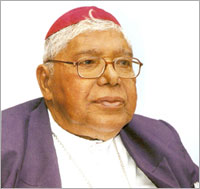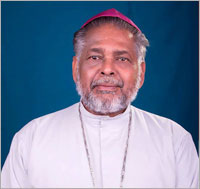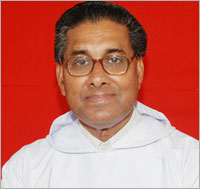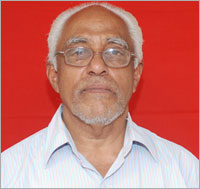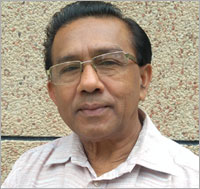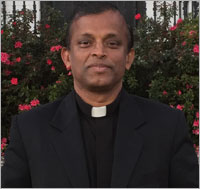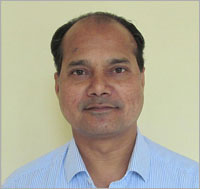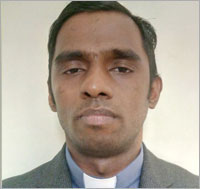- 0191 - 2481222, 2480139
- director@csssjk.org
Higher Management

Rt. Rev. Ivan Pereira
President



Catholic Social Service Society (CSSS) of J&K is an outcome of a dream cherished by Prefecture Apostolic of Jammu & Kashmir to take the message of the Catholic Social Teaching to the people in Jammu & Kashmir and be at the service of the needy. The dream was so profound that the Society was founded 5 years prior to the creation of the Diocese of Jammu-Srinagar in 1986.
The origin of CSSS dates back to 1981 when the society was registered and established at Srinagar, the then headquarters of Prefecture Apostolic of Jammu & Kashmir under the Societies Registration Act VI of 1998 (Jammu & Kashmir) bearing registration number 618-S of 1981.
Fr. Dominic Thirunilathu OFM Cap took charge of the Society as its first Director. Multiple responsibilities of Fr. Dominic, lack of personnel and absence of proper networks impeded the growth of the CSSS in Kashmir. With the formation of the diocese in 1986, the operations of CSSS shifted to Jammu. Thus, Fr. PA. Joseph took charge as the Director. He along with a handful of sisters concentrated on community outreach and rural health care in places like Kaleeth, Bishnah and Nagri.
In 1992, when Fr. KuriakoseThudiamplackal took over the mantle from Fr. PA Joseph, he became the first diocesan priest to head the Society. The society was still without an office and functioned on ad-hoc manner from Bishop’s House in Jammu and Akhnoor, even as it continued to assist people on a charity mode addressing the immediate needs of the people both financially and materially. By now, there was a good network of health centres in different mission stations of the diocese in Jammu region.
The appointment of Fr. Arul Alphonse in 1994 paved the way for a full-time Director. In 1995 CSSS succeeded in finding an office space when the Capuchin Fathers gifted Shanti Ashram at Kunjwani By-Pass to the Diocese. Rechristened as Sevaniketan,the Ashram became the head office of CSSS.
Fr. Soosai Nathan took over from Fr. Alphonse in 1998 when the latter went to Mumbai to pursue Masters in Social Work. CSSS took responsible steps to address several social and humanitarian issues, biggest among them being the response to forced-migration of people from the border regions due to the
war in Kargil in 1999-2000 and the relentless cross-border shelling that followed. By now, the idea of strengthening the community health service was growing stronger. And this resulted in the birth of St. Joseph’s Community Hospital at Smailpur.
Having qualified as a professional social worker, Fr. Alphonse returned to CSSS as the Director in 2002. He concentrated on consolidating the presence of CSSS in Jammu with community development projects. The Society also added much needed human resource to execute the work as it looked forward to moving from a charity organization to a professional social work agency. He took special care to upgrade the hospital and ensure that the hospital was able to provide primary health care and referral services.
Even though CSSS did not have a permanent base in Kashmir, it has always come to the aid of the people in natural and human-induced calamities. The Society was engaged in relief and rehabilitation for the victims of
snow tsunami in 2004-05. Later, when a massive earthquake hit Kashmir in October 2005, CSSS was one of the first non-government organizations to respond with relief in Uri sector. Such response in any circumstances is possible due to the network of institutions of the Church. In this case, St. Joseph’s School in Baramulla became the base camp for CSSS to coordinate its operations. Thanks to the generous donors, what started, as a relief operation was later converted into a full-fledged rehabilitation and community development project that continued till 2011 under the guidance of Fr. Jose John Neelamkavil as the project co-ordinator.
Fr Justin Thiraviam took charge of CSSS in 2009. The massive floods in J&K in 2014 offered a clarion call to CSSS for relief and rehabilitation and it responded with all might. It supported in early relief in seven districts that included Srinagar, Bandipora, Pulwama, Poonch, Rajouri, Reasi and Jammu with all food, non-food items including temporary shelter and medical assistance.
Fr Shaiju Chacko succeeded Fr. Justin in 2015 and took up rehabilitation in some of the severely affected villages in Pulwama district. From January 2016, CSSS has initiated a new project in Pulwama as part of its renewed commitment to preparing communities to be
resilient to disasters. This has also paved the way for the presence of CSSS in Kashmir with an office and staff in Pulwama.
The main strength of CSSS, over the years, has been the development and empowerment of rural women through the formation of Mahila Mandals and SHGs (women’s collective) at the grassroots level. The target groups include women, youth and children that are spread across
145 villages in Jammu region and 10 in Kashmir. Institutional and community-based support in the field of health care and disability are other major areas of our focus. St. John’s Special School at Mandal is a day-boarding school that takes care of the special needs of
differently-abled children. Apart from the special school, we also support scores of children in their educational and medical needs.
